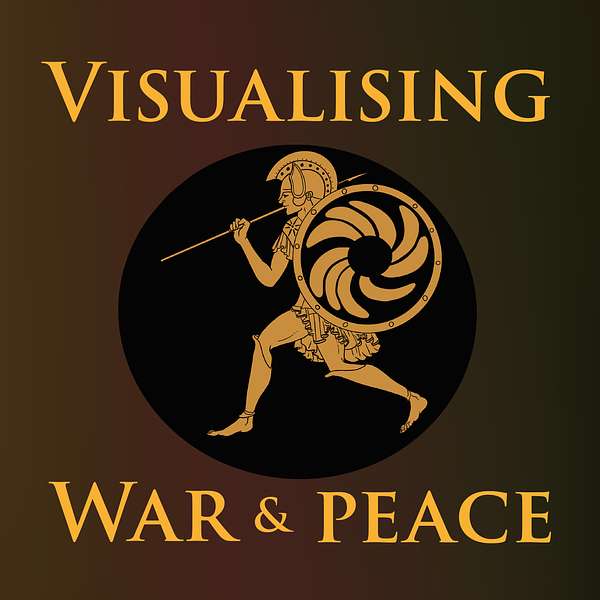
Visualising War and Peace
How do war stories work? And what do they do to us? Join University of St Andrews historian Alice König and colleagues as they explore how war and peace get presented in art, text, film and music. With the help of expert guests, they unpick conflict stories from all sorts of different periods and places. And they ask how the tales we tell and the pictures we paint of peace and war influence us as individuals and shape the societies we live in.
Visualising War and Peace
Visualising the Thirty Years' War with Steve Murdoch
Use Left/Right to seek, Home/End to jump to start or end. Hold shift to jump forward or backward.
In this episode, Alice interviews Prof. Steve Murdoch, Head of Military History at the Swedish Defence University. Before taking up that role, Steve was a professor of military history at the University of St Andrews, and he has been a generous supporter of the Visualising War project from its start. Steve’s research focuses on Scottish and Scandinavian relations in the early modern period. He has worked particularly on the Thirty Years War, fought from 1618-1648; and he has also written a range of books and articles about Scottish maritime warfare and wider Scottish experiences (both military and civilian) of conflict in this period.
As both a teacher and researcher, Steve thinks critically about how and why we do military history – about our blindspots and biases, the evolution of historical events into sometimes mythical narratives, the voices we don’t hear from, and the relevance of military history to contemporary military thinking and practice. We discuss all of this and more in the podcast epsiode.
Steve begins by giving us an overview of the complex set of events that became known as the Thirty Years' War. He helps us to visualise its scale and wide-ranging locations, overlaps with other conflicts, and the shifting agenda and alliances of those taking part. He also gets us looking critically at how sources from the time represented events and participants, and how later scholarship has engaged with them. This gets us talking about the dominance of 'great battles' and 'big personalities' in past and present habits of visualising the Thirty Years' War; at the distorting effects of certain biases in both sources and scholarship; and at what we gain when we pay more attention to ordinary people's voices. For instance, Steve shares with us some letters written by both soldiers and commanders which help us to track the everyday experiences and concerns of those involved, which contrast strongly with the self-aggrandizing rhetoric of some better-known sources; and he also helps us to visualise how the Thirty Years' War was experienced by a range of women, who lost family or were displaced (or both) in the conflict.
Steve ends by reflecting on the kinds of peacebuilding achieved (and not achieved) by the Peace of Westphalia. He gives us some fascinating insights into the work of two Scottish diplomats, Sir Robert Anstruther and Sir James Spens, who were intimately involved in negotiations between different sides; and he discusses the ongoing ripple effects of the Thirty Years' War after its official conclusion, for ordinary people as well as international relations. All in all, he helps us to visualise this complex period of conflict - which impacted many different countries - from a wide and refreshing range of perspectives.
We hope you find the discussion interesting. For a version of our podcast with close captions, please use this link. For more information about individuals and their projects, please visit the University of St Andrews' Visualising War website.
Music composed by Jonathan Young
Sound mixing by Zofia Guertin